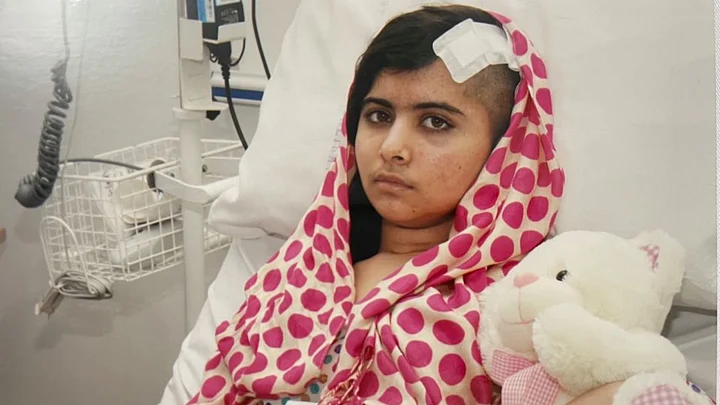Nobel Peace Prize winning activist Malala Yousafzai wrote about her experience of being shot by the Taliban 9 years ago at the age of 15. She was shot in Pakistan's Peshawar by the terrorist organisation for her views on girls' rights and their education.
The bullet hit her skull, damaging her facial nerves and skull bone, thereby requiring her to go through various rounds of critical surgery to be treated. Taking to Podium, she shared her experience and wrote, "I had the most severe head pain. My vision was blurry. The tube in my neck made it impossible to talk. Days later I still couldn’t speak, but I started to write things in a notebook and show them to everyone who came to my room. I had questions: What happened to me? Where is my father? Who is going to pay for this treatment? We don’t have money."
Her skull bone had to be removed and put in her stomach instead. She was told it would later be put there, but the doctors decided to replace her skull bone permanently with a titanium plate. Now, her skull bone lies in a case on her bookshelf.
Talking about all the things that helped her recover, she also revealed that the media attention added to the public support she was getting, and how that helped her survive.
She wrote, "When the Taliban shot me, journalists in Pakistan and a few international media outlets already knew my name. They knew that I had been speaking against the extremists’ ban on girls’ education for years. They reported on the attack and people around the world responded. But it could have been different. My story might have ended in a local news item: “15 year-old shot in the head.”
Without the crowds of people holding “I am Malala” signs, without thousands of letters and offers of support, prayers and news stories, I might not have received medical care. My parents certainly wouldn’t have been able to cover the costs on their own. I might not have survived."
Talking about the current situation in Afghanistan, she also said that they were going through much worse things, "Nine years later, I am still recovering from just one bullet. The people of Afghanistan have taken millions of bullets over the last four decades. My heart breaks for those whose names we will forget or never even know, whose cries for help will go unanswered."
